
Alphabetical Menu
Chronological Menu
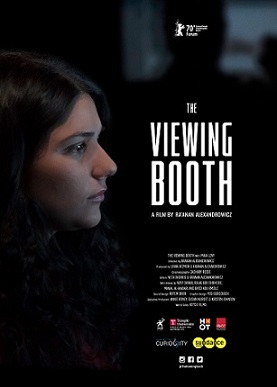
In The Viewing Booth, director Ra'anan Alexandrowicz tries to answer Virginia Woolf's question about whether we react to the same photographs of warfare differently or similarly by conducting an experiment where he observes students from Temple University as they watch and react to war-related video clips in an editing room viewing booth. One of those students, Maia Levy, is the subject of the doc. The director gives her the freedom to watch any clip that she wants in any order and as many times as she wants. Some of the clips are from B’Tselem, a non-profit organization that documents human rights violations by the Israelis in the West Bank and Gaza, the Palestian occupied territories, while other clips were shot by the Israeli Defense Forces. Maia comes back 6 months later to give her reactions yet again so that the director can observe if her reactions have changed or not. At first, Maia doesn't react at all and he has to tell her to react. Whenever she views a clip that shows Israel in a bad light treating Palestinians abusively, she questions the credibility and context of the clip---she doesn't yell "fake news!" at least, but she doesn't believe what she sees and hears. Although The Viewing Booth try to answer Virginia Woolf's question, albeit by using moving images, not still photographs, it doesn't cut very deep or lead to any surprising epiphanies. It's more interesting as a study of human nature and how hard it can be to change someone else's thoughts and feelings with moving images. The Viewing Booth is much more complex than it seems, though, because there are so many perspectives simultaneously. You're watching the director watching a student watching footage of a cameraman who's filming what he (or the camera, more accurately) is viewing. Why should the audience trust Maia's reactions? Why should the director trust Maia's reactions for that matter? Could she be afraid to change her mind about being pro-Israel if it means that she'd be critizing Israel? If the documentary were to spend more time getting to know Maia and how she reacts to other kind of clips perhaps those questions would've been answered. Alexandrowicz doesn't ask her, for instance, what might've changed in her life over the past 6 months between the two viewings. The fact that she comes back 6 months later to view the images again without changing her viewpoint much does provide a little insight about how steadfast she is, but what if she were to come back again years later like how Michael Apted checked in with his subjects 7 years later in the Up series? Perhaps a few years later with more life experiences Maia would've had different reactions as well as different reactions to her past reactions. At a brief running time of just 1 hour and 10 minutes, The Viewing Booth, is initially intriguing, but incomplete, not insightful or revelatory enough, and bites off more than it could chew. It opens at MoMI via RoCo Films. 6:45  Bobby (Michael Reed) takes his girlfriend, Jules (Augie Duke), to the island of Bog Grove for a vacation. They stay at a hotel run by the enigmatic Gene (Armen Garo) who's tight-lipped about why Bog Grove looks so deserted. While he and Jules walk down on the sidewalk later that day, someone in a black hood suddenly kills them both. Bobby wakes up at 6:45 AM and re-lives that day over and over while trying to avoid his and his girlfriend's fate. There have been a number of time loop movies over the past years, some of better than others, but most of them, like Groundhog Day, Happy Death Day and the recent Palm Springs have played the concept for laughs. If you can imagine Palm Springs or Happy Death Day as a serious, darker thriller, you'll get an idea of what it's like to watch 6:45. The screenplay by Robert Dean Klein includes just enough red herrings and mystery to keep you at the edge of your seat with suspense. There's just the right amount of exposition that lets your imagination wander a little as you try to connect the dots. Klein wisely doesn't reveal the third act's twist too soon, so when it does finally get revealed at the right time, there's a level of surprise. It's more surprising and satisfying than the boring, banal twist in M. Night Shyamalan's latest suspense thriller Old. Both films involve a sci-fi mystery that takes place during a vacation, but 6:45 feels a little less tedious and actually develops the personality and lives of its characters to make them worth caring about despite their flaws. They're not merely pawns designed to move the plot forward like in Shyamalan's recent films. Bobby's past comes back to haunt him and plays an increasingly important part of the film's plot. The same can be said about his troubled relationship with Jules. Admittedly, the dark tone becomes a bit monotonous at times, so some more comic relief would've helped to provide some much-needed levity. The twist works even in hindsight, although it's not bold or brilliant as some of the twisted thrillers from the 90's or from the 2000's like Primal Fear, Arlington Road, The Sixth Sense and Shutter Island, although it comes close. Fortunately, director Craig Singer and screenwriter Robert Dean Klein don't rely heavily on gore as a means of entertaining the audience; there's indeed some blood, but it's not excessive or too disgusting. The thrillers and horror remain mostly psychological, so the filmmakers clearly grasp the power of the audience's imagination. 6:45 has pretty slick and impressive production values that make it a stylish and cinematic experience. The setting in Bog Grove along with the cinematography and set design add some atmosphere, especially in the beginning when Bobby and Jules first arrive at the bizarrely empty island, enter the hotel and meet its creepy keeper. The pace moves briskly enough, and the editing doesn't feel choppy. Most importantly, though, the filmmakers avoid shaky cam as a means of generating tension and intensity. The performances by Michael Reed and Augue Duke are pretty solid and convincingly moving during the more emotional scenes when their characters argues and face their past trauma. At an ideal running time of 1 hour and 33 minutes that never becomes exhausting, 6:45 is a gripping, suspenseful and chilling psychological thriller. 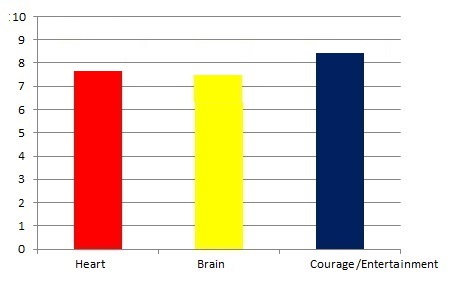 Escape from Mogadishu 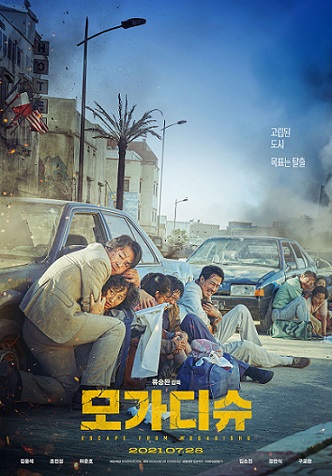 In 1991, South Korean diplomats, Kang Dae-jin (Jo In-sung), Gong Soo-cheol (Jeong Man-sik), Han Sin-seong (Kim Yoon-seok) become stranded with North Korean diplomats, Tae Joon-ki (Koo Kyo-hwan) and Rim Yong-su (Heo Joon-ho) while war rages on in the city of Mogadishu, Somalia. They and their families must learn how to get along as they fight for their lives to escape from Mogadishu. The screenplay by writer/director Ryoo Seung-wan blends action, suspense and drama with just the right amount of comic relief. He spends the first act introducing the audience to the characters in a compelling way so that once their escape begins, you're able to care about them as human beings unlike in Zhang Yimou's recent Cliff Walkers where the character were merely caricatures---or unlike any Michael Bay movie. There's just enough exposition about the war going on in Somalia and the tensions between North and South Korea so that the plot isn't too confusing. Even when there are double crossings and other twists, the film remains easy to follow. This isn't like a Christopher Nolan film that tries to bombard the audience with a lot of information all at once. The plot remains simple yet complex at the same time without any scenes that feel unnecessary, contrived or cheesy, even when the North and South Korean diplomats as well as their families bond with each other while they eat. Seung-wan grasps Hitchcock's theory that suspense is all in the anticipation because he saves the riveting action scenes toward the end as the audience remains at the edge of their seat. There's an enormously entertaining and rousing car chase that almost comes close to the classic car chases in Ronin and Bullitt. Escape from Mogadishu has just the right blend of style and substance to make for an intelligent and gripping thriller for adults, the kind of movie that Hollywood doesn't make anymore these days. Yes, there's some action, but it's always necessary for the plot without being excessive. It's also worth mentioning that the action is very well-shot and choreographed without relying on shakycam. The performances are decent and natural which only makes the film all the more grounded in realism. The pacing doesn't move too quickly nor too slowly, so it's easy to feel absorbed by the story without boredom seeping in. At a running time of 2 hours, Escape from Mogadishu is an exhilarating, rousing and engrossing thriller. 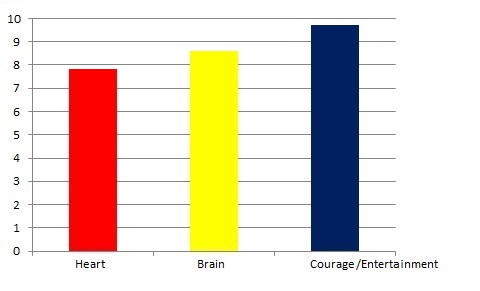 John and the Hole 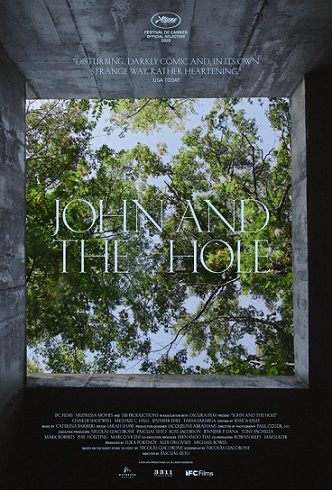 13-year-old John (Charlie Shotwell) lives with his mother, Anna (Jennifer Ehle), father, Brad (Michael C. Hall), and sister, Laurie (Taissa Farmiga). After discovering a large hole in the ground that he learns is a bunker, John decides to drug his family and hold them captive inside the bunker. Despite a seemingly simple title and premise, John and the Hole is anything but simple. On the surface, the screenplay by Nicolás Giacobone tells a dark and twisted story with elements of psychological thriller, horror along with shades of The Bad Seed, We Need to Talk About Kevin and American Beauty. Beneath the surface, it's an emotionally devastating and searing portrait of a dysfunctional upper middle class family. John's family provides for him materialistically, so he's not neglected in that way. They've given him a roof over his head, clothes, food and tennis lessons. His father even gives him a drone as a gift. He does suffer, though, from emotional neglect and has a lot of emotions inside of him which he never learned how to process. He doesn't know how to deal with his emotional pain, so he takes his anger and frustration out on his family. That's just one interpretation of John. Giacobone doesn't spell everything out to the audience and doesn't even ask you to judge him, so it's up to you, as an intelligent and perceptive audience member, to discern and interpret John and his motive(s). There's no voice-over narrative or over-explaining, so the filmmakers clearly understand that less is more. They also avoid gore while focusing more on John's experiences instead of his family's ordeal inside the bunker. The only scenes that feel unnecessary and distracting are the ones involving Gloria (Georgia Lyman) telling the story of "John and the Hole" to her daughter, Lily (Samantha LeBretton). John's story is complex and compelling enough, so the brief wrap-around story slightly takes away from the film's dramatic momentum without adding much. On a purely aesthetic level John and the Hole shines as a poetic work of art because of the stylish cinematography where every shot feels like it has some meaning. The aspect ratio of 4:3, which just barely looks like a box, also provides some style. This is the kind of movie where the style becomes a part of its substance. It's also worth mentioning Charlie Shotwell's strong performance. John remains at an emotionally cold distance from the audience, but thanks to Shotwell's skills as an actor, it's possible to observe the emotions brewing innately within John. Shotwell essentially helps to humanize John and to display his inner life which remains mostly hidden. Director Pascual Sisto and screenwriter Nicolás Giacobone also make great use of symbolism without hitting the audience over the head. For example, John's conversation with the gardener when he learns from him that a spider eats other bugs in the garden can be seen as a metaphor as well as a foreshadow of the events to come. What John does to his family could also be seen as a metaphor, depending on how you interpret the unpredictable ending. At a running time of 1 hour and 38 minutes, John and the Hole is one of the most provocative and haunting psychological thrillers since We Need to Talk About Kevin. 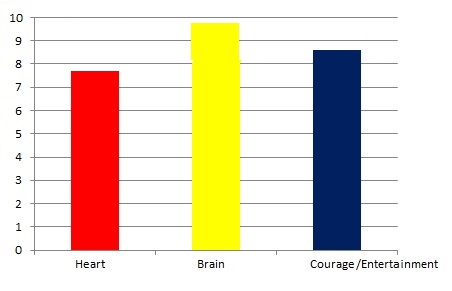 The Macaluso Sisters 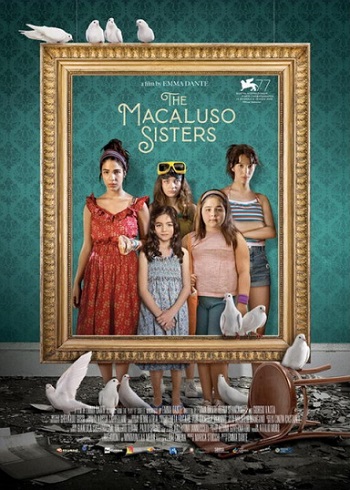 Five sisters, Pinuccia (Anita Pomario), Maria (Eleanora De Luca), Antonella (Viola Pusateri), Lia (Susanna Piraino) and Katia (Alissa Maria Orlando), take care of each other while living in an apartment after they become orphaned. A tragedy on the beach changes the course of the rest of their lives. The Macaluso Sisters, based on the play by director Emma Dante, follows the experiences of the five Macaluso sisters during their childhood, middle-age, and elderly years. Co-writers Giorgio Vasta and Elena Stancanelli weave a genuinely engrossing, warm and poignant narrative that spans decades while treating the characters like human beings which helps to ground the film in authenticity. By not showing the tragic event right away in the beginning, they don't dwell on it; just on the aftermath and how it affects the sisters as human beings. The relationships between the sisters feel real as do the evolving dynamics between them throughout the years. Fortunately, the screenplay doesn't have any hackneyed or maudlin moments that would've turned it into a schmaltzy soap opera. It also doesn't shy away from showing the sadder, darker moments in the sisters' lives, so kudos to the director Emma Dante and the screenwriters for not sugar-coating. Also, the filmmakers do a great job of balancing the happy and sad moments without any clunkiness. With a less sensitive screenplay, the film could've easily felt like it were overstuffed with too many characters and events because there are so many sisters in 3 different stages of their lives, but it never feels that way. Even some of the characters' revelations toward the end come across as organic. It's very moving to watch the sisters show their vulnerability and openly express their feelings toward one another, especially later in their years when they're more emotionally mature and can reflect on their past. Those feelings aren't always pleasant or easy, but they're yet another part of what makes them all the more human. It's interesting how they deal with the emotional pain from the tragedy differently and to observe how they've changed--yet remained the same in some ways--as human beings during their elderly years. The performances of all of the actresses across the board, from the young ones to the older ones, are superb and natural. The filmmakers chose not to use the same actors who played the middle aged version of the sisters to play the elderly versions. They could've added make-up to make them look older, but instead they hired different actors which makes it feel more real. Sometimes casting more than one actor to play the same character in different stages of the character's life doesn't work, but in this case it does thanks to the well-chosen cast each of whom find the emotional truths of their role. The editing between the different time periods is smooth and doesn't feel abrupt nor does it lead to confusion. When it comes to the use of music, The Macaluso Sisters also excels because the soundtrack compliments the film's emotions and even enriches its emotional depth occasionally. The fact that the filmmakers managed to tell this story in only 89 minutes is a testament to their skills of storytelling. It could've been 30 minutes longer and would've still been engaging to watch. That alone makes The Macaluso Sisters a triumph because too many films these days overstay their welcome. At a brief running time of 1 hour and 29 minutes, it's genuinely moving, captivating and, most importantly, grounded in pure, unadulterated humanism. It would make for a good double feature with the recent New Zealand film Cousins which also has strong roles for women from 3 different generations. 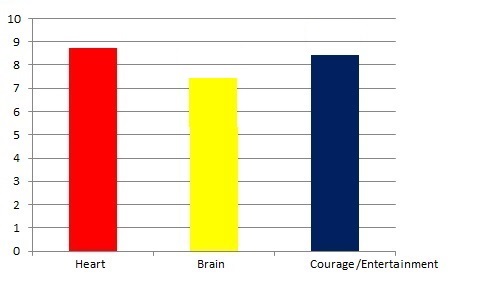 Materna 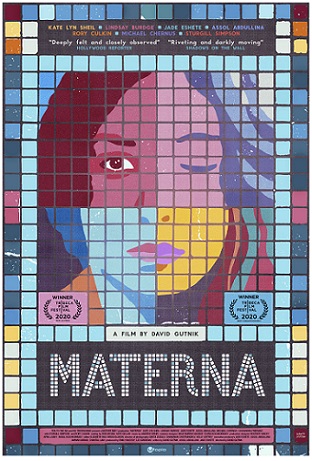
The lives of four strangers, Jean (Kate Lyn Sheil), Ruth (Lindsay Burdge), Mona (Jade Eshete) and Perizad (Assol Abdullina) intersect during an incident on a NYC subway train. Jean, who's single and lives alone, has to deal with the news that she's pregnant while her mom tries to convince her to freeze her eggs. Mona must come to terms with the relationship with her estranged mother while she struggles in the actress after a failed TV show. Perizad returns to Kyrgyzstan to pay her condolences to her family and to grieve after the death of her uncle. Ruth (Lindsay Burdge) hopes that her brother, Gabe (Rory Culkin) can help her son, Jared (Jake Katzman), who's been suspended from school. The screenplay by writer/director David Gutnik and co-writers Jade Eshete and Assol Abdullina tell four short stories with four different women who are brought together by fate when their lives converge on a New York City subway car. The subway incident involves a man who acts very threateningly, but that's not the focus of the film. After showing you the four women sitting inside the subway car, the film flashed back to their recent experiences that led them there. Each story could've easily been expanded into a longer film, so they feel too brief and incomplete unlike the two converging stories in the recent slice-of-life Eyimofe. Materna tackles many issues all at once, but barely scratches the surface. Jean, Ruth, Mona and Perizad are compelling characters, but the audience barely gets a chance to get to know them before their inevitable meeting on the subway. You learn a little bit about what they're going through as human beings by the time their paths intertwine, though, yet they still remain at an emotional distance from the audience by the time the end credits roll. Also, there's not enough comic relief, and a heated dinner scene toward the end that has some pointed arguments about race and other topics feels like a lazy, tacked-on way to make the film timely and provocative. The performances all across the board are superb and the cast is very well-chosen, especially Kate Lyn Sheil, Assol Abdullina and Rory Culkin. Each of the actors and actresses look like ordinary, everyday people which is refreshing and adds to the film's authenticity. It's also refreshing that the film leaves a key incident at the end up to the audience's imagination, although it does feel abrupt, almost as much as the action at the end of Jeanne Dielman, 23 Commerce Quay, 1080 Brussels or the psychological drama/thriller Axis. At a running time of 1 hour and 45 minutes, Materna is a well-acted amalgam of four compelling stories, but it's ultimately too undercooked and underwhelming. 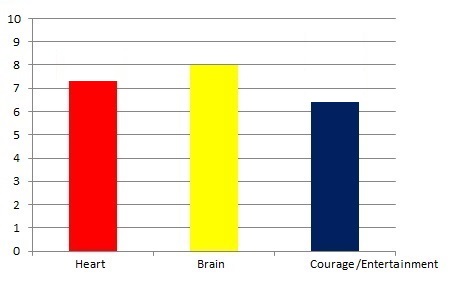 Naked Singularity 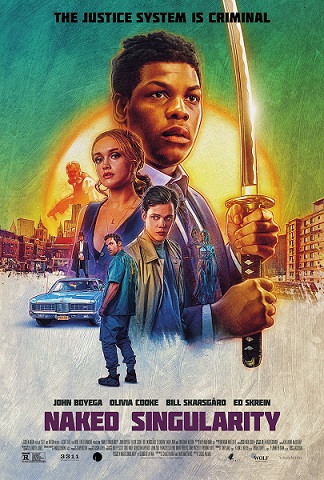
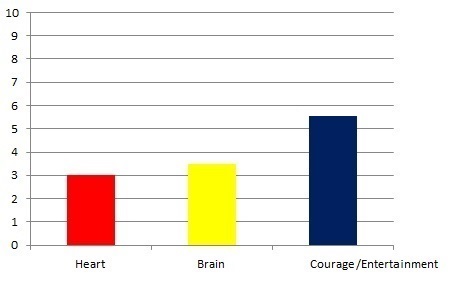 Playing God 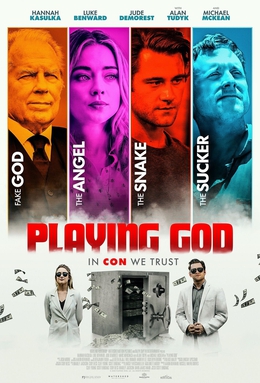
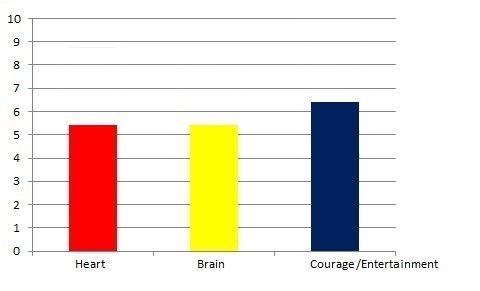 The Suicide Squad 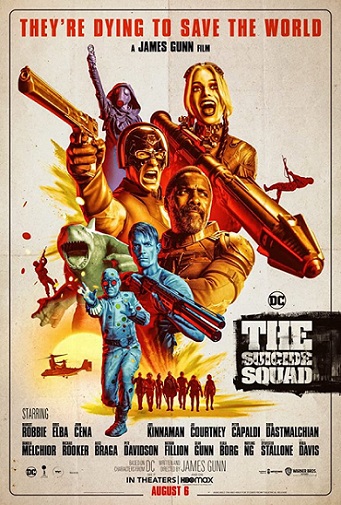 Bloodsport (Idris Elba) leads Task Force X whose members include Harley Quinn (Margot Robbie), Captain Boomerang (Jai Courtney), Rick Flag (Joel Kinnaman), Savant (Michael Rooker), Peacemaker (John Cena), King Shark (voice of Sylvester Stallone), Polka-Dot Man (David Dastmalchian), Ratcatcher 2 (Daniela Melchior), Blackguard (Pete Davidson) and Javelin (Flula Borg). Their mission, according to Amanda Waller (Viola Davis), is to destroy a science lab on the island of Corto Maltese where Thinker (Peter Capaldi) holds captive a giant alien called Starro. The screenplay by writer/director James Gunn lacks wit and does a poor job when it comes to exposition, but it at least has the guts to get up the ante in terms of bizarreness and dark humor. Does every movie these days have go into bonkers territory? F9: The Fast Saga, Hitman's Wife's Bodyguard, >i>Jungle Cruise, Old and Space Jam: A New Legacy went there, too, and now The Suicide Squad joins the club as will Free Guy soon. Those kinds of movies work if they're fun, but there's very little fun to be had while watching this film. It's gory, action-packed, loud and very, very repetitive. Lynne Ashe is the highlight, though, as Polka-Dot Man's mom. She's in at least two scenes that have to be seen to be believed. Too much of the film feels like a cross between an exhausting acid trip and a nauseating music video. There are so many characters, all of whom are one-dimensional. Gunn gives very little room for the audience to root for any of them and, most importantly, there's not enough room for the audience to breathe. The stylized Tarantino-esque violence gets tiresome after a while. If The Suicide Squad were 90 minutes like Hitman's Wife's Bodyguard, it would at least be a lean, tight superhero action comedy. Does it really need to be 2 hours and 12 minutes? Not for any artistic reasons. Viola Davis does her best to rise above the material in her role as Amanda Waller, but it's beneath her. Peter Capaldi has a lot of fun in his role like Richard E. Grant did in his brief scenes in Hitman's Wife's Bodyguard. Margot Robbie is also pretty good, but the real scene-stealer here is Lynne Ashe as Polka Dot's mom. The pace moves quickly and there's plenty of stylish visuals, CGI and music to keep your eyes and ears entertained. What about the audience's heart, mind and soul? Those are sorely neglected which is a shame unless this were merely a video game, not a movie. Ultimately, The Suicide Squad is yet another mindless, overproduced B-movie that's neither funny, exciting nor campy enough to be a guilty pleasure. 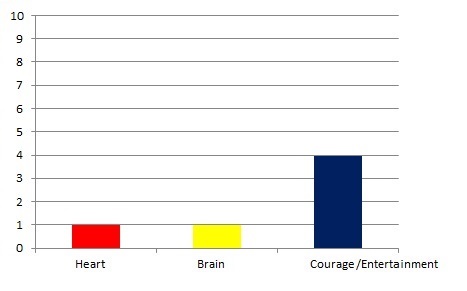 |